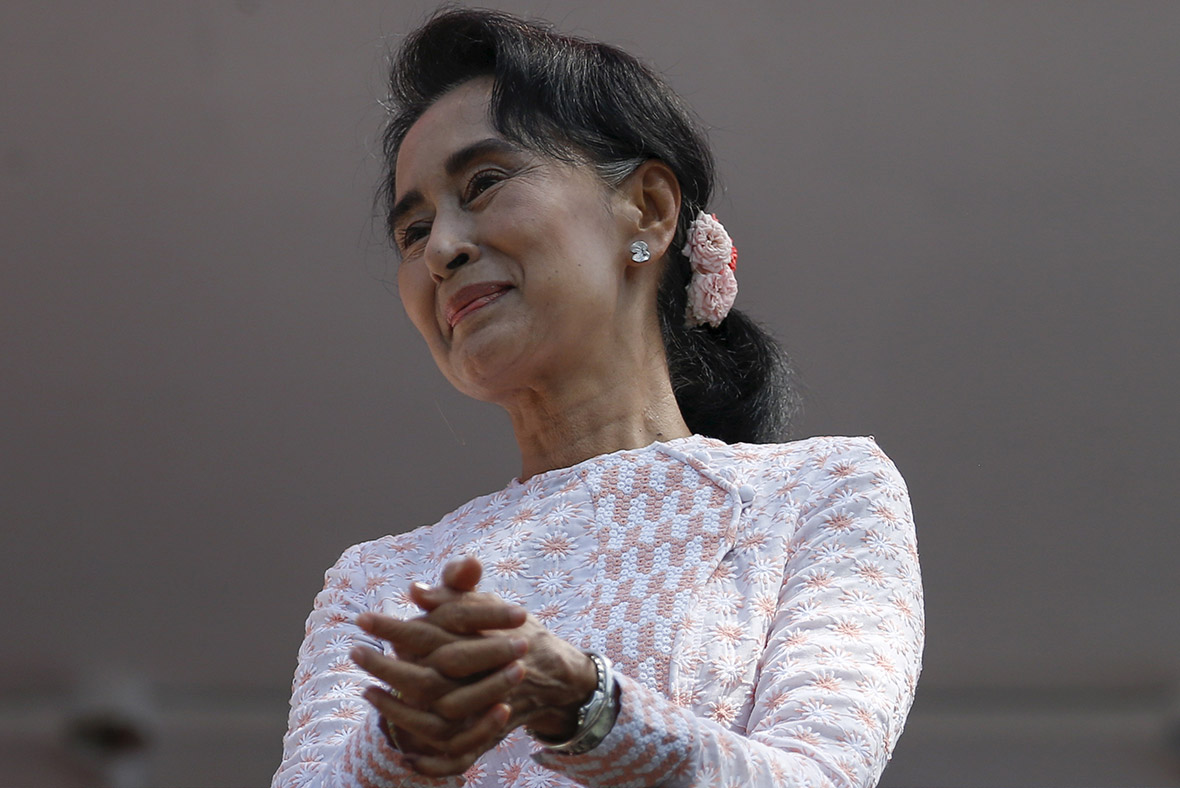Myanmar elections: Dawn of a new era as Aung San Suu Kyi heads for landslide victory
Aung San Suu Kyi's opposition National League For Democracy (NLD) party appears to be headed for a landslide victory in Myanmar's historic elections. Myanmar's ruling party conceded defeat after NLD won all 12 of the parliamentary seats declared in the first round of results. The NLD said its own tally of results from polling stations around the country showed it on track to win more than 70% of the seats being contested in parliament, more than the two-thirds it needs to form Myanmar's first democratically elected government since the early 1960s.
A smiling Suu Kyi appeared on the balcony of the NLD's headquarters in Yangon and urged supporters to be patient and wait for the official results.


The election is a landmark in Myanmar's unsteady journey to democracy from the military dictatorship that made it a pariah state for so long. Although the election appears to have dealt a decisive defeat to President Thein Sein's Union Solidarity And Development (USDP) party, a period of uncertainty still looms over the country and the election will not create a fully democratic Myanmar.
The constitution reserves 25% of parliamentary seats for unelected members of the military, after an amendment was added to keep Suu Kyi from the presidency, barring anyone with a foreign spouse or child from being president or vice president. Suu Kyi's two sons are British, as was her late husband. Suu Kyi, however, has said she will act as the country's leader if the NLD wins the presidency, saying she will be "above the president".
Pro-democracy supporters are jubilant at the idea of a Suu Kyi victory, and the weakening of a military-backed regime in a country where iron-fisted generals have held sway for half a century. Even some pro-government voters have hailed the general election, if only in the hope that a new government will bring improvement to their lives in one of the world's most impoverished nations.









The junta, which seized power in a 1962 coup, annulled the results when Suu Kyi's party won a sweeping victory in the 1990 elections. She spent most of the next 20 years under house arrest before her release in 2010.
A new vote was held in 2010, but the opposition boycotted it, saying the election laws were unfair. The USDP won by default and took office in 2011 under President Thein Sein, a former general, who began political and economic reforms to end Myanmar's isolation and jump-start its economy. The economic reforms that were introduced brought mobile phones, social media and many material things into the lives of people – especially the young. Many believe they will keep the country going forward and not back into isolation.











"Dawn of a new era. Millions vote in historic election," was the banner headline of the New Light of Myanmar, a government-owned newspaper and long a mouthpiece for ruling juntas, reflecting just how much Myanmar has changed.
© Copyright IBTimes 2025. All rights reserved.






















